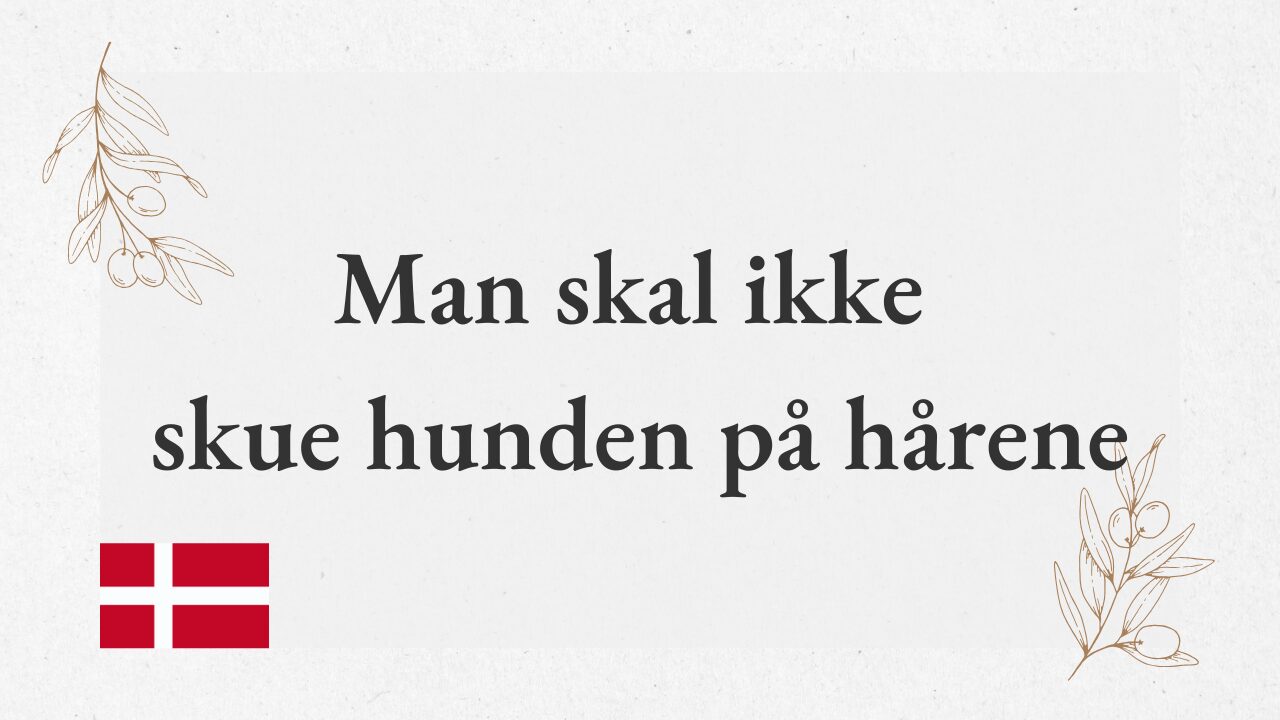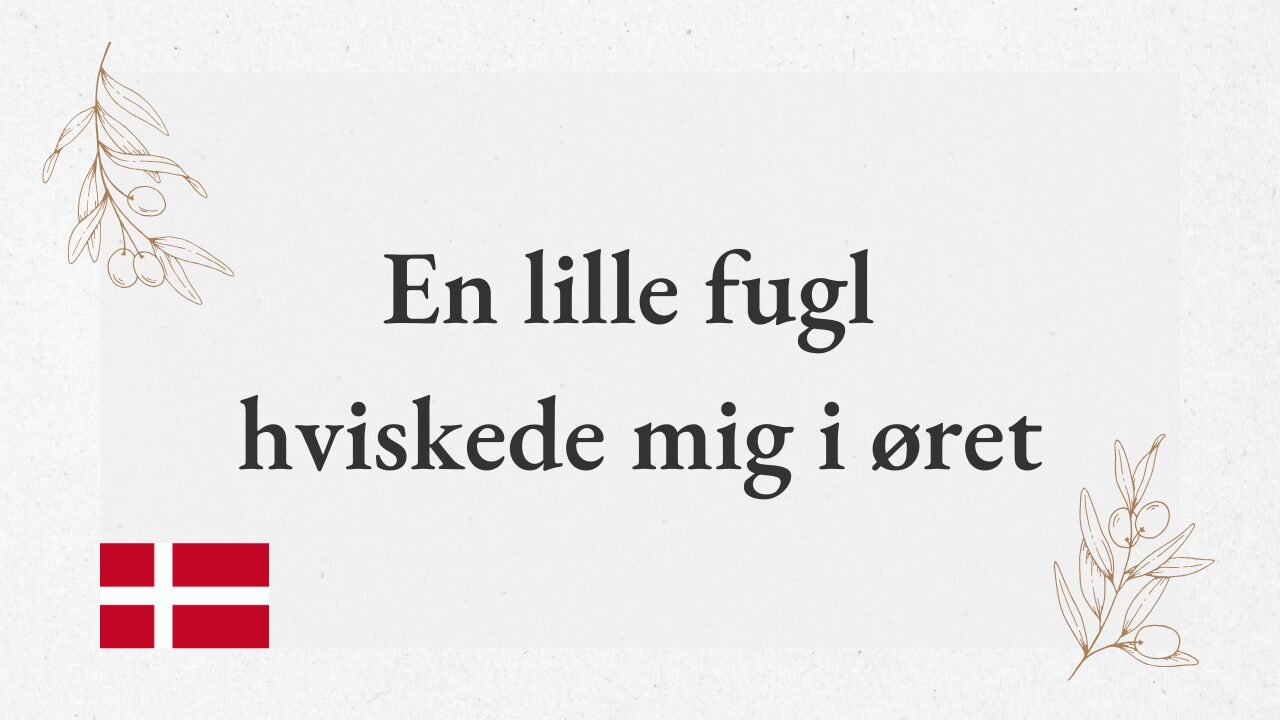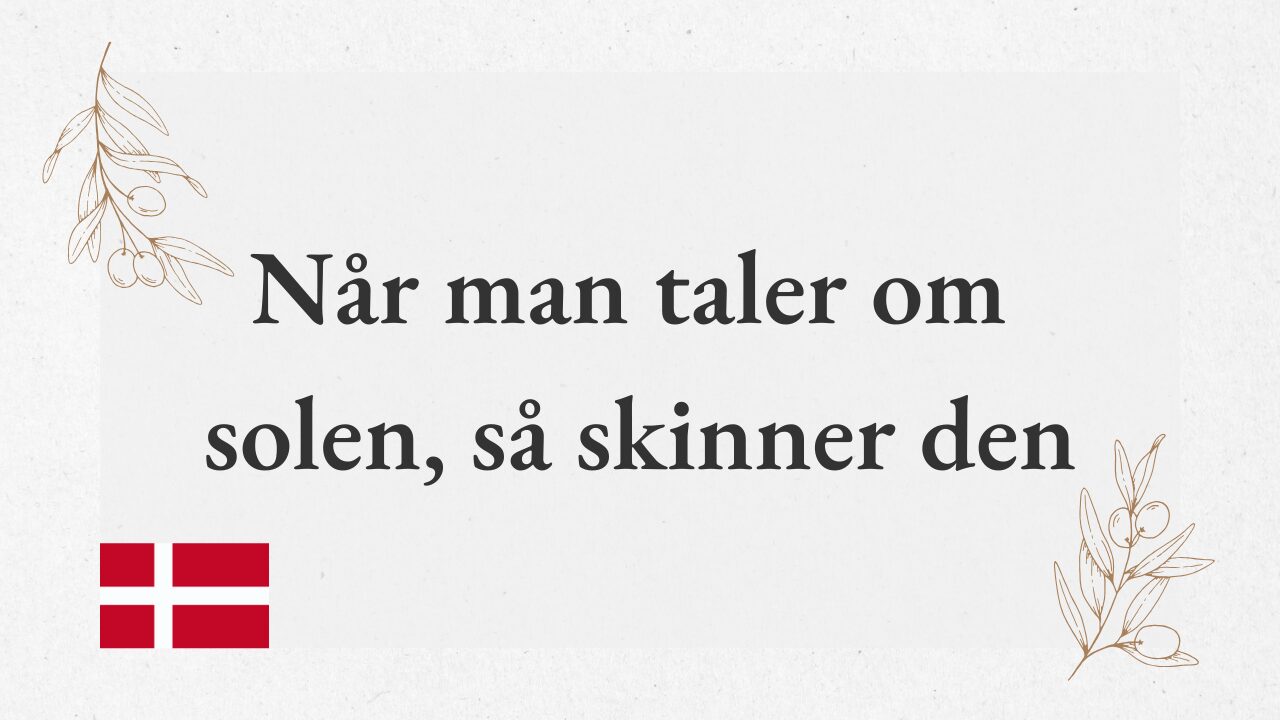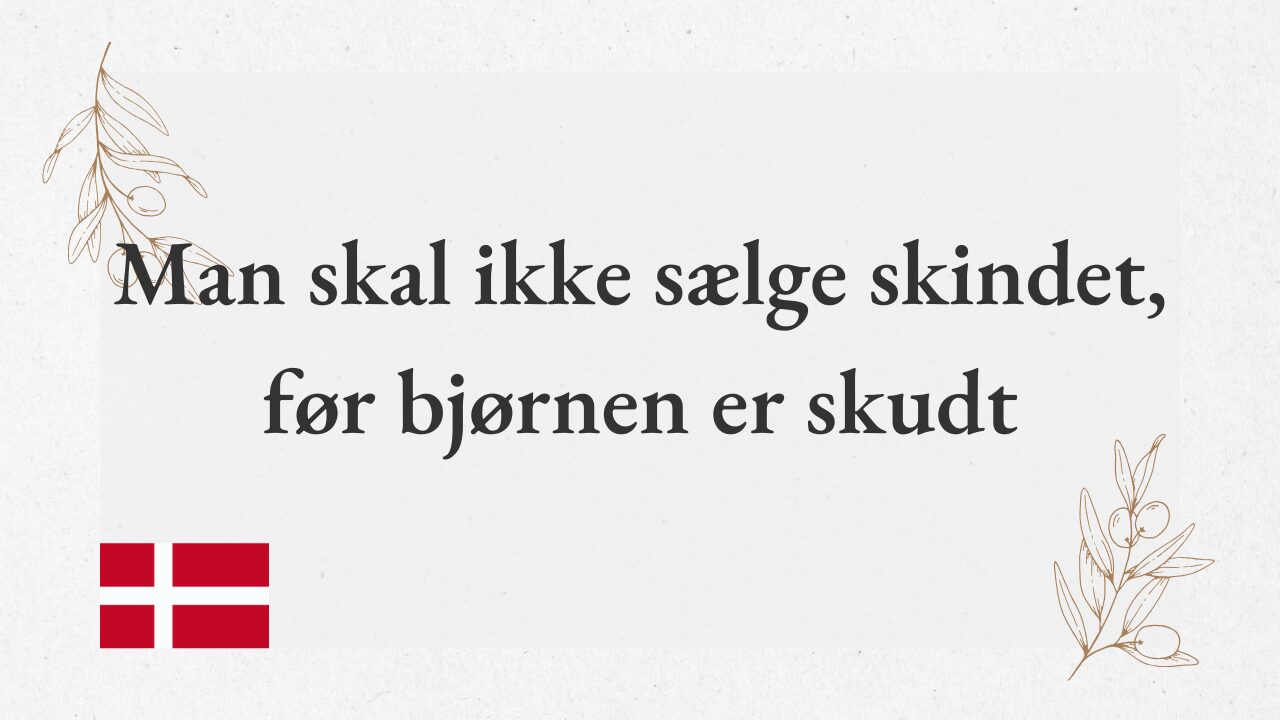“Det er svært at lære en gammel hund nye tricks” – It is difficult to teach an old dog new tricks
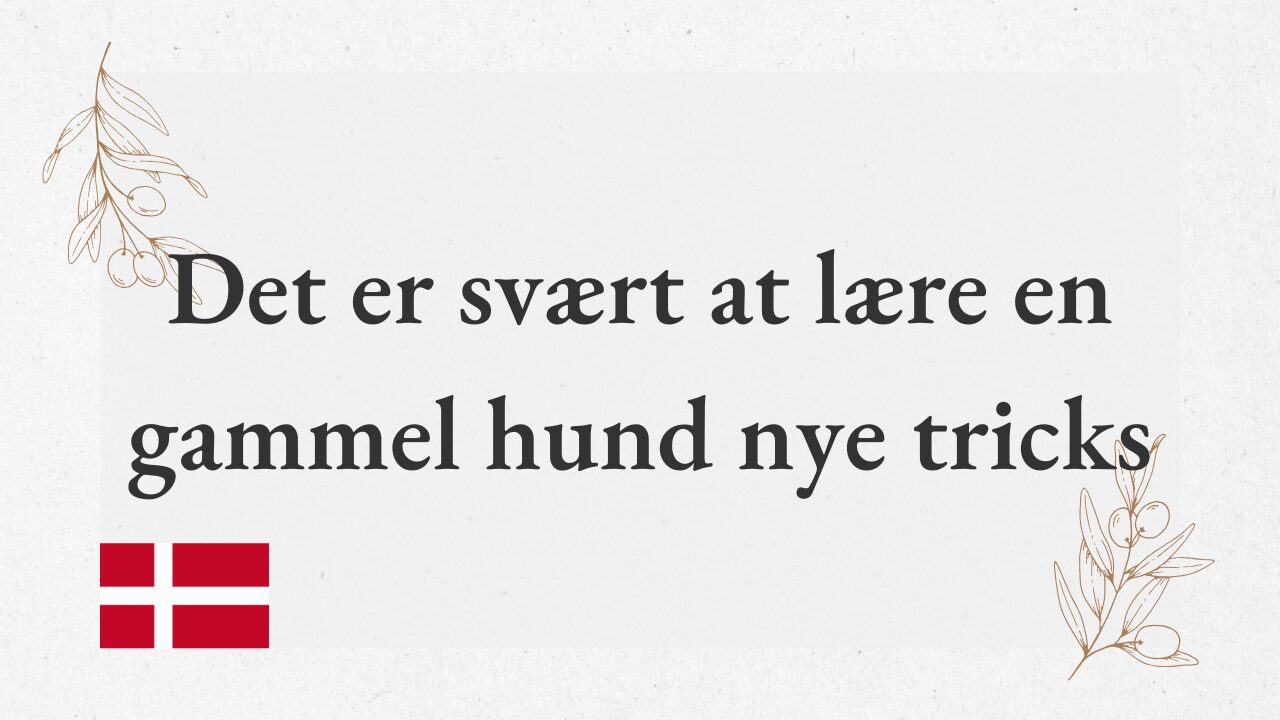
Meaning
“Det er svært at lære en gammel hund nye tricks” literally translates to “It is difficult to teach an old dog new tricks.” This expression means that, as people age, they often become less adaptable and flexible, making it harder to learn new ways of thinking or skills. Older people tend to be deeply rooted in the values and habits they learned when they were young, so adjusting to new changes can be challenging.
The English expression “You can’t teach an old dog new tricks” carries almost the same meaning and is used similarly in English-speaking regions to refer to the difficulty of adapting to new things.
In Japanese, similar expressions include “It is difficult to learn new things as you get older” and “Young trees are easier to bend.” These expressions reflect the universal idea that flexibility and adaptability tend to diminish with age.
Origin
This proverb originates from the natural behavior of dogs. Younger dogs are generally more adaptable, responding well to training and learning new things easily. In contrast, older dogs find it harder to learn new tricks.
In Danish culture, this behavior of animals is often used as a metaphor to describe human traits. It reflects a common theme in Nordic cultures, where animals’ behaviors or instincts are used to explain human characteristics.
Conclusion
“Det er svært at lære en gammel hund nye tricks” is a Danish proverb meaning “It is difficult to teach an old dog new tricks,” which suggests that as people grow older, they find it harder to adapt to new things.
In Danish culture, animal behavior is frequently used to represent human characteristics, and this expression is one such example. It conveys a universal theme seen across cultures and is an apt expression for discussing the challenges of adapting to new things with age.

